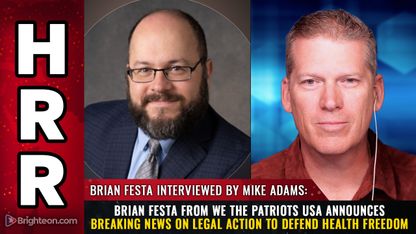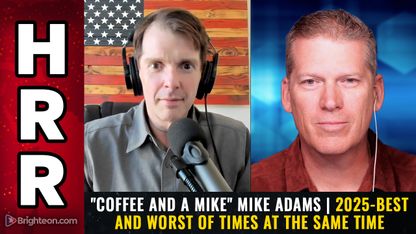
New York, in particular, remains to be the hardest-hit region with over 44,879 cases. But other states – including Michigan, Illinois, California and Louisiana – are preparing for a spike in new cases as increased testing could uncover more infections. In an interview, Surgeon General Jerome Adams warned that Detroit, Chicago and New Orleans are expected to be flooded with new cases next week.
"The virus and the local community are going to determine the timeline. It’s not going to be us from Washington, D.C.," Adams told CBS on Friday. "People need to follow their data. They need to make the right decisions based on what their data is telling them." (Related: Explosion of coronavirus cases about to hit “dozens of cities” across America beginning next week, warn the CDC and US Surgeon General.)
California braces for more cases
In California, health officials are expecting the number of new cases to surge as early next week, even as the results of 65,000 tests are still pending. In a statement, Gov. Gavin Newsom said that the spike is expected and will only worsen. Newsom has said earlier that the state needs over 50,000 hospital beds as well as 200 million pieces of PPE to accommodate a spike in cases.
Los Angeles Mayor Eric Garcetti, on the other hand, has expressed concern over the rapid upswing in cases in the city. According to Garcetti, if this trend continues, Los Angeles could soon be facing conditions like that of New York City – the epicenter of the disease in the U.S. – in five days.
"We will have doctors making excruciating decisions," he added. "We will be trying to figure out what we do with that surge, how to get ventilators, where to find beds."
To help the state in its battle against the coronavirus, the USNS Mercy hospital ship docked on Friday morning at the Port of Los Angeles. The floating hospital will treat non-COVID-19 cases, opening up coastal hospital beds to accommodate the surge. In addition, the city has also prepared the Los Angeles Convention Center to serve as a location for patients.
Despite being in the middle of a wartime economy, some businesses are slowly adapting. In Los Angeles, recreational vehicle companies have shifted their markets amid the pandemic to serve medical personnel, the government and people looking to get away from urban hotspots.
In San Francisco, doctors have yet to see the overcrowding of hospitals that have gripped other parts of the country. As of Friday, the city has only 279 confirmed cases. To prepare for a potential surge of cases, many hospitals in the city have scaled down surgeries to only those that are essential and reduced patient encounters, with most now taking place online. Popular beaches, open fields and even parking lots were shut down, however, as many people did not comply with the city's call for social distancing.
"We know what happened last weekend," said Mayor London Breed. "Sadly, we saw a number of areas in our city that were just jam-packed, and we also saw people who were playing things like volleyball and basketball and other sports."
New York plunged into chaos as front-liners catch coronavirus
On Friday, health authorities in New York reported 134 coronavirus-related deaths – the state's highest since the coronavirus outbreak began in March. This brings New York's total deaths to 519 – roughly a third of the nation's total. In a statement, Gov. Andrew Cuomo said the state remains the hardest-hit region in the country, and that caseloads are still expected to rise.
"That is going to continue to go up, and that is the worst news that I can tell the people of the state of New York. New York is still the most affected state both in terms of number of cases and in terms of deaths," said Cuomo, speaking at the Javits Center, which has since been converted into a medical bivouac.
In addition, over 500 members of the New York Police Department have tested positive for the coronavirus as of Friday, including 442 uniformed officers and 70 civilian members. But the Daily Mail reports that over 3,000 policemen are suffering from "flu-like" symptoms, which could indicate a higher number of people who carry the virus. This will undoubtedly test the NYPD as it continues to grapple with more sick calls and an increasing death rate. In the report, around 3,000 police officers of the 4,111 who called in sick have reported congestion, fever, coughing, a runny nose and fatigue – symptoms associated with COVID-19.
The NYPD has reported its first two deaths from coronavirus complications this week: Dennis Dickson, a custodian at NYPD headquarters, and Giacomina Barr-Brown, a civilian employee at the 49th Precinct Roll Call Office.
Get the latest on the current coronavirus pandemic at Pandemic.news.
Sources include:
Please contact us for more information.























